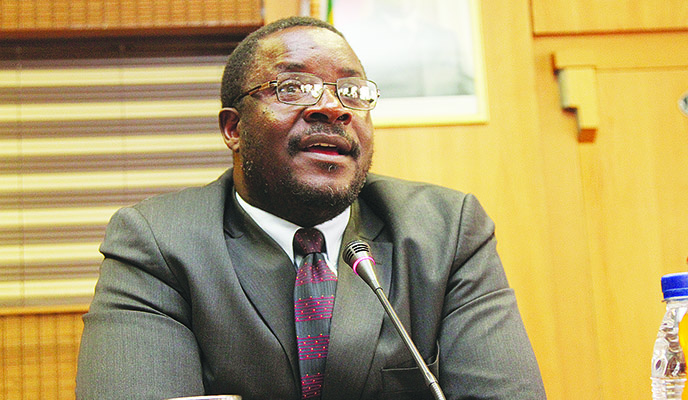
Information, Media and Broadcasting Services ministry permanent secretary George Charamba has revealed that most media organisations in the country are facing viability problems, owing to a myriad of challenges.
“I am happy to say that there is now a forum of publishers that meets very often and because everyone is badly hit by the negative trends within the industry, and when we looked at the IMPI [Information and Media Panel of Inquiry] report, we were able to get a view of what needs to be done legislatively and by way of policy,” he said while addressing members of the Parliamentary Portfolio Committee on Information, Media and Broadcasting Services to speak about his ministry’s 2018 budget.
“When I looked at the publishing industry, I did not see any performer, who is making money and the ZAMPS [Zimbabwe All Media Products Survey] reports clearly point to viability problems across the board, and even the figures of The Sunday Mail and The Herald show a dip, maybe because we have been relying on a too old model, which shows that there is need for re-strategising to see how they can make money through digital platforms.”
In terms of performance of the broadcasting sector, Charamba said the best performer was Radio Zimbabwe, followed by ZBC-TV, then Power FM and Star FM and ZiFM Stereo. He said S-FM was a bit on the elitist side.
Charamba said Kingstons Limited had not been doing well to the extent that they even lost their building, which was sold at $1,5 million, but was bought by TransMedia and the Broadcasting Authority of Zimbabwe.
“Another problem is NewZiana which has not been doing well for its potential, but it is not yet a financial headache for me. I think we need to re-invent it by giving it new direction like audio visuals.”
He told the committee that ZBC was mooting the introduction of sport, movies and 24-hour news channels, while telecoms operators like TelOne and Telecel were also trying to venture into broadcasting, like Econet Wireless, which is already working towards launching its own broadcasting services.
Charamba said he has not been worried about taking the IMPI report forward because of changes happening in the media industry with new features always, adding there is need to canvas for adequate legislative issues in that area.
- Chamisa under fire over US$120K donation
- Mavhunga puts DeMbare into Chibuku quarterfinals
- Pension funds bet on Cabora Bassa oilfields
- Councils defy govt fire tender directive
Keep Reading
On the KPMG report, he said it is almost complete and is aware that some executives took money from ZBC.
On Kwese TV, he said they already knew that one of the requirements was that they should introduce ZBC on their bouquets.
Charamba said these were not substitutes to ZBC, as people would still need to watch the local news.
He said the digital content or channels that would be introduced would be far cheaper than Kwese TV and DStv at $5 per month.
Binga South MP Joel Gabbuza asked Charamba if he was drawing two salaries from the Office of the President and ministry, to which he said he only worked for the Information ministry.











